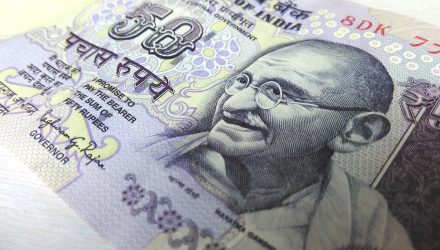As more look to the relatively cheap emerging equities in response to pricier conditions in U.S. markets, long-term investors may consider a mix of traditional beta-index and smart beta exchange traded funds to provide enhanced returns and smooth out the ride over time.
Emerging markets have outperformed this year, with the Russell RAFI Emerging Markets Index returning 18.5% through July 31 while the FTSE Emerging incl Korea Index gaining 23.2% for the same period.
Schwab ETFs and FTSE Russell experts, though, argued that this difference isn’t a mistake but rather stems from the different methodologies the two indices follow, which should reflect the value of using both indexing methodologies in the context of a long-term investment portfolio.
“The FTSE Emerging incl Korea Index weights its constituents purely by market capitalization, so its performance is a reflection of prevailing prices for emerging markets stocks and not their intrinsic value,” FTSE Russell managing director of North America research Rolf Agather, said in a research note. “The Russell RAFI Emerging Markets Index, on the other hand, uses a fundamental weighting approach which weights index constituents according to their intrinsic value, derived from sales, cash flow and dividend accounting measures, and not on price. For this reason, it is not difficult to see how a market cap weighted emerging markets index has had higher returns in 2017 amid heightened investor interest and stock valuations in this region.”
For instance, the widely observed Vanguard FTSE Emerging Markets ETF (NYSEArca: VWO) increased 26.3% year-to-date. VWO tracks the FTSE Emerging Markets All Cap China A Inclusion Index, a traditional market-cap weighted index, and covers a number of emerging markets around the world like China, Brazil, Taiwan and South Africa, among others.
On the other hand, the PowerShares FTSE RAFI Emerging Markets Portfolio (NYSEArca: PXH) gained 22.8% year-to-date. PXH tracks the FTSE RAFI Emerging Markets Index, a fundamentally-weighted ETF focusing on the virtues of book value, cash flow, sales and dividends.
“We believe an investment approach that combines market cap weighted and fundamentally weighted index approaches makes sense over time,” Tony Davidow, Alternative Beta and Asset Allocation Strategist for The Schwab Center for Financial Research, said in a note. “In fact, the fundamentally weighted Russell RAFI Emerging Markets Index was up nearly 30% in 2016, significantly outperforming its market cap weighted counterpart, and has had stronger aggregate performance over the last 5 years. The point is not which index methodology outperforms the other, but rather we believe that a blend of traditional and fundamentally weighted index-based approaches over time can help provide diversification, cost effective exposure and the potential for alpha.”
The opinions and forecasts expressed herein are solely those of Tom Lydon, and may not actually come to pass. Information on this site should not be used or construed as an offer to sell, a solicitation of an offer to buy, or a recommendation for any product.
